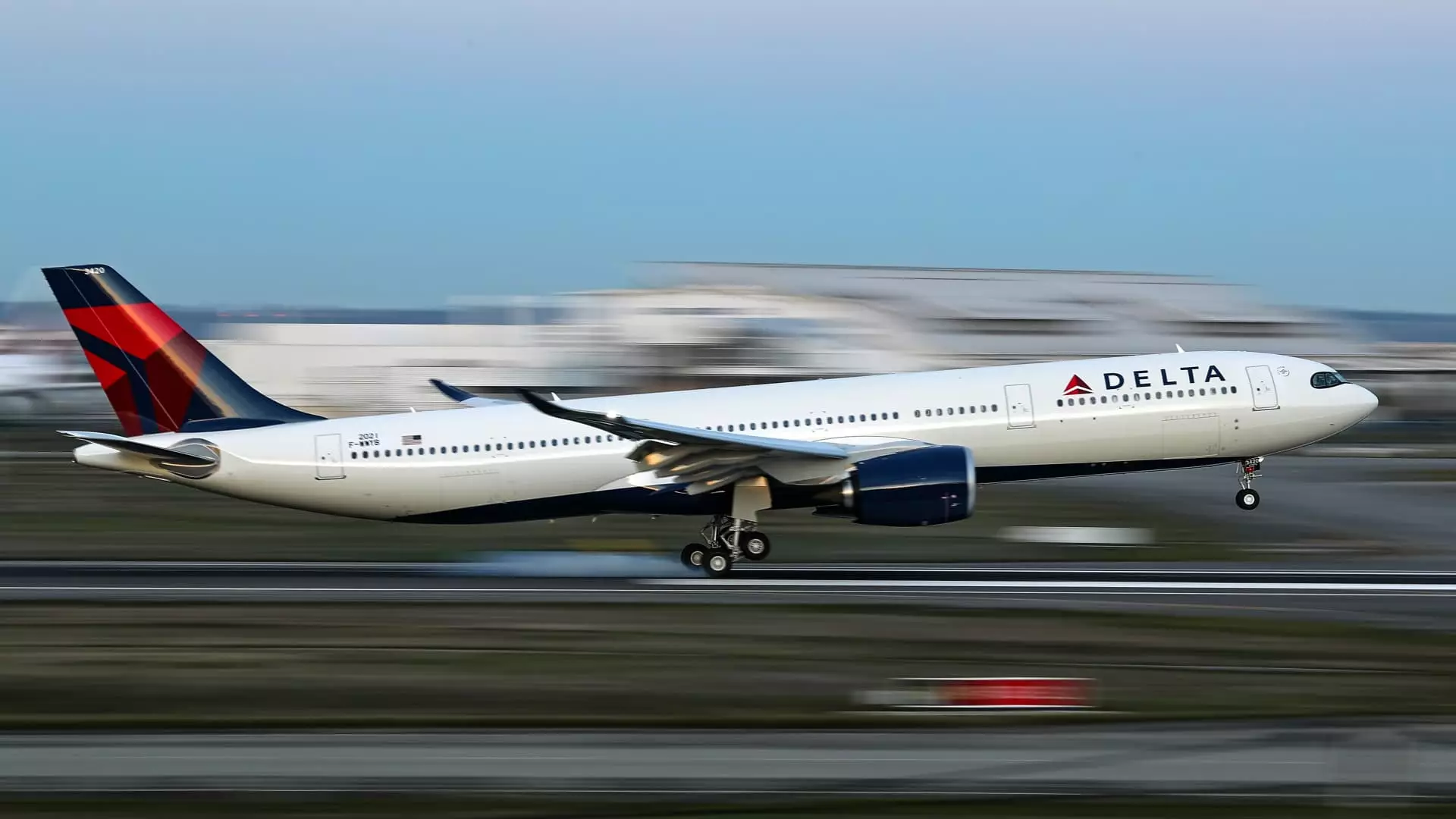In an era where airline profitability hinges on ever-evolving consumer expectations, Delta Air Lines appears to be meticulously recalibrating its premium cabin offerings. The airline’s concerted effort to innovate within its luxury sections suggests a recognition that the allure of first-class and business-class seats is waning—not because travelers no longer desire comfort, but because their preferences are shifting. This strategic pivot raises a fundamental question: Is Delta’s move toward testing new premium ticket formats a savvy response to market demands, or is it a desperate attempt to cling to a dying model that could undermine its long-term viability?
The airline industry’s historical approach to cabin segmentation is rooted in the assumption that travelers would pay premium prices for exclusivity and enhanced service. For years, airlines systematically deconstructed their economy sections—introducing basic fares, eliminating amenities, and reducing incentives to upgrade—driving profit margins upward in the main cabin. Yet, in the shadows of this evolution, the premium cabins remained a core profit engine, buoyed by luxury, exclusivity, and loyalty. Delta’s current strategy seeks to capitalize on this trend, focusing intensively on “bringing segmentation to all premium cabins.” Essentially, the airline is asking: Can we make the luxury experience even more refined—and more variable—to better match diverse customer valuations?
However, the gamble involved is considerable. The aviation market has become more competitive, with its traditional leaders facing both new challenges and new contenders. While Delta is exploring options like stripped-down premium fares or larger, more flexible seats, the broader landscape is already shifting away from the “one-size-fits-all” approach to premium travel. Competitors such as United and American are upgrading their top-tier products—with amenities like private social suites and more personalized spaces that emphasize social intimacy and privacy. These innovations are more than marketing gimmicks; they reflect a deeper understanding of the modern traveler’s desire for flexibility, social interaction, and tailored experiences. If Delta doesn’t keep pace, it risks losing its premium customer base to rivals that more effectively blend luxury with personalization.
Add to this the broader economic environment that makes airlines hesitant to leap into costly upgrades without guaranteed returns. As Henry Harteveldt astutely notes, the fundamental challenge is providing a reason for passengers to pay more, not less. Airlines are in a perpetual tug-of-war: they need to justify premium prices but also cannot ignore the increased competition and changing consumer values. If Delta’s innovations—be it smaller, more personalized suites or cheaper first-class options—fail to resonate, the risk isn’t merely financial but strategic: weakening the loyalty ecosystem built on these higher-margin seats.
Furthermore, Delta’s approach exposes a deeper tension within the airline’s identity. The policy of continuously updating and upgrading premium cabins, as stated by CEO Ed Bastian, hints at an industry-wide realization: what was once cutting-edge quickly becomes outdated. This cycle of perpetual reinvestment is costly, not just in terms of machinery but also in maintaining customer perception of value. The question remains whether this relentless push for innovation can be sustainable in a landscape increasingly skeptical of luxury’s real value—especially when economic shocks or shifts toward more frugal travel become more prevalent.
In the end, Delta’s focus on refining its premium services speaks to a core truth about the airline industry: the battle over who can best serve the elite travel segment is fierce, and the stakes are high. The question is whether these efforts are foundational or merely cosmetic. As travelers become more astute and selective, the challenge for Delta—and the industry at large—is to truly redefine what “luxury” means in the 21st century—not just as a collection of perks, but as an authentic, adaptable experience that justifies the premium price tag. Without that evolution, the future of premium cabins may look less like an innovative frontier and more like an expensive relic of a bygone era.


Leave a Reply